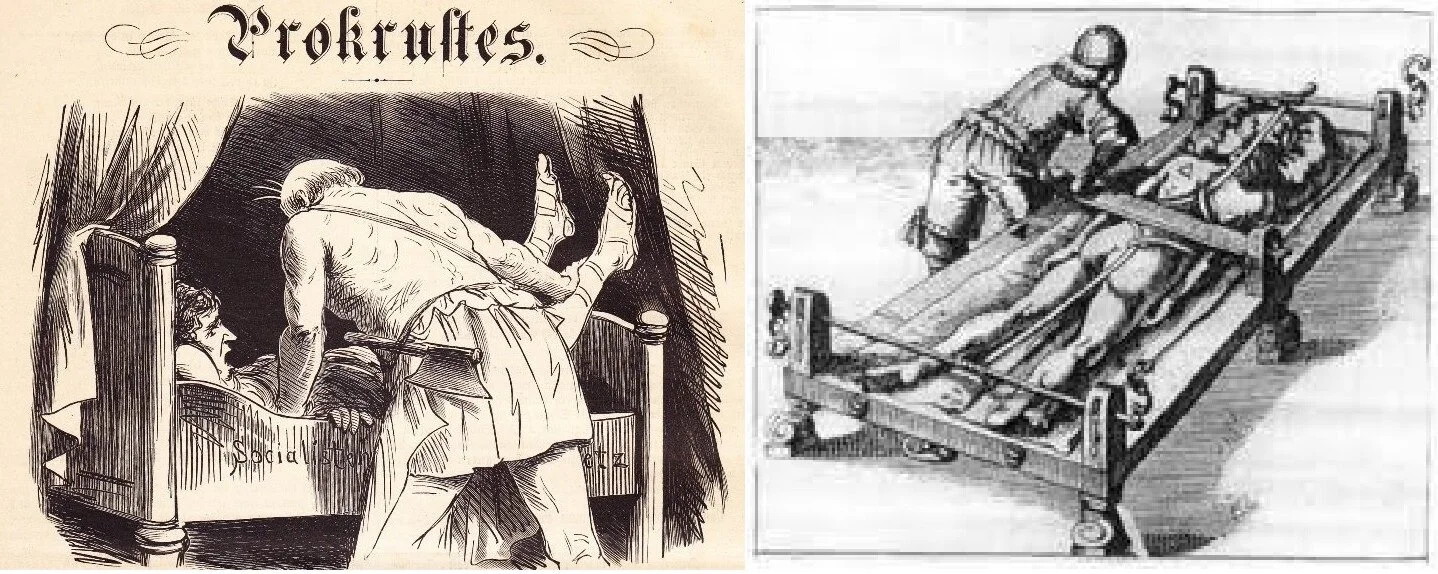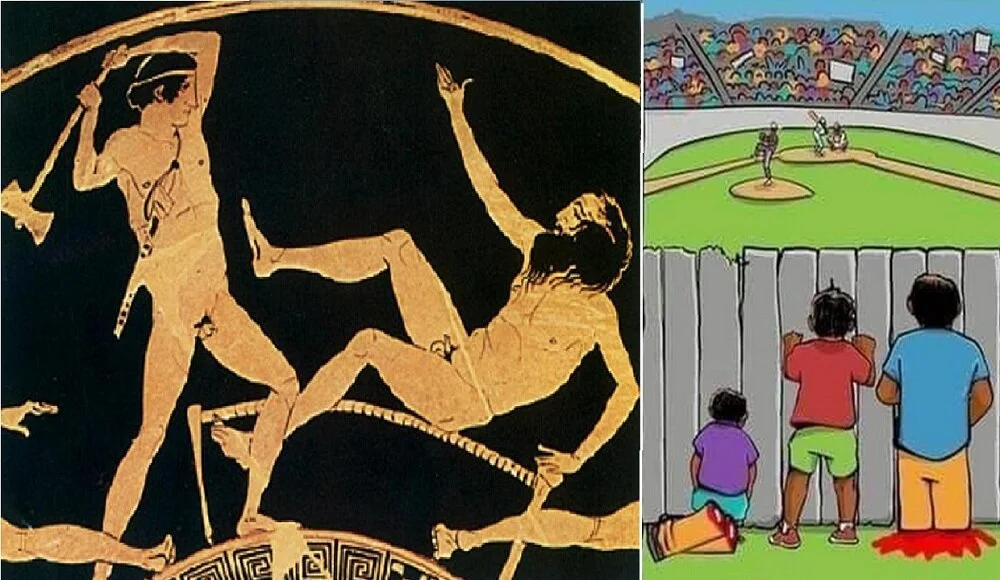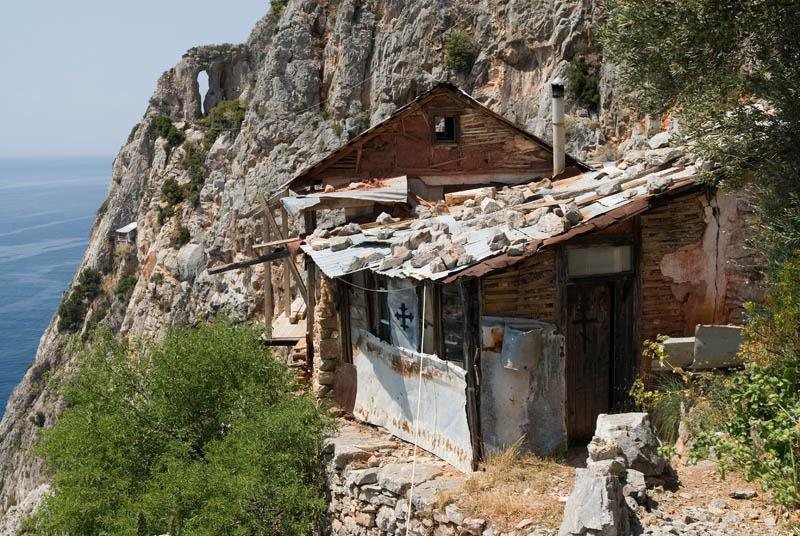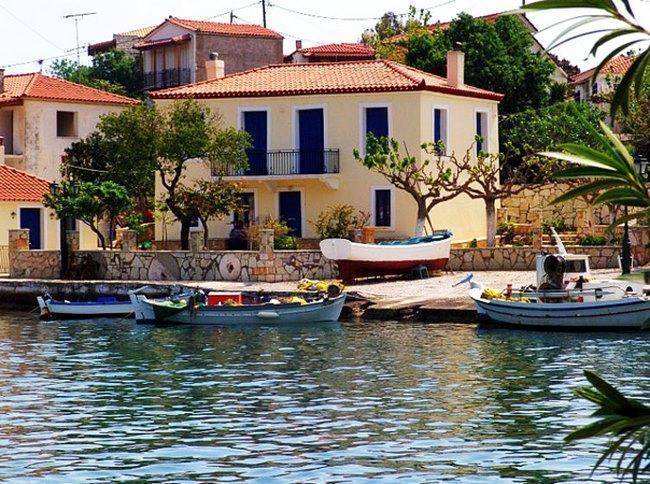Legend has it that the ancient hero Theseus chose not the safe sea route for his journey from Troizina to Athens, but the land route, which held traps and dangers. The hero wanted to prove his strength by clearing the way of villains.
Theseus and Procrustes
Plutarch writes that in those days there arose men who were supernatural and indefatigable in the works of the hands, in the swiftness of the feet, and in bodily rum. But these natural qualities were not used for the good and benefit of men, but for inhumanity, evil, and domination.
Among the robbers whom Theseus defeated by forcing them to suffer the end they imposed on others, was Damastis, the so-called Procrustes, who was unique in inspiring a deadly martyrdom. He made a bed of a certain size, on which he laid the people, and according to their size, he pulled or slashed them.
Apollodorus writes that he had two beds, one small and one large. He placed the short ones on the large bed and pounded them to stretch them, and the tall ones on the small one to cut off the superfluous parts.
Procrustes' bed
What does the myth teach us?
Beneath the robber's savage and primitive crimes lie imposed equality and industrial sameness. Procrustes did not know then that his imaginary martyrdom was the root of the later globalization, the absolute equality of men.
Orwell's and Huxley's nightmarish works were based on his own inspiration, perhaps unwittingly.
Orwell versus Huxley: will destroy us what we hate or what we love?
The size of the bed used by Prokroustis or Damastis symbolizes the arbitrariness of any tyrant while stretching or cutting to achieve the same shape implies the death of all difference and originality.











